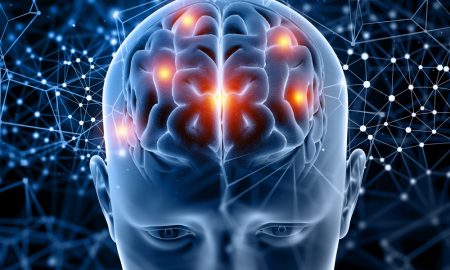
Welcome to Vitamin D 101 – All About the Sunshine Vitamin

When approaching a healthy diet, people often take into regards proteins, carbohydrates, healthy fats, vitamins, and minerals. Every single component is important when it comes to leading a healthy lifestyle but there are few nutrients that are overlooked and most ignored; one of these include Vitamin D. Yes, the sunshine vitamin. It is a steroid hormone that is produced from the cholesterol in the skin when it comes in contact with sunlight.
When you were younger you probably heard your elders say that playing in the sun gives you Vitamin D. While they were right to some extent, sunlight might not provide you with an adequate amount of Vitamin D so it is important to incorporate vitamins through supplements and dietary changes.

Pexels | In fact, it is reported that only 41.6% of the US population has Vitamin D deficiency
Here’s What It Is
In simple words, Vitamin D is fat-soluble in nature. That means that once it enters your body, it gets absorbed into the fats that are present and they can often be stored for quite some time. However, there are 2 dietary forms of Vitamin D available:
- Vitamin D3: It is also referred to as cholecalciferol and is sourced from animal products like fatty fish and egg yolks. Vitamin D3 is said to be more effective and efficient when it comes to increasing the Vitamin D rates in the blood.
- Vitamin D2: This Vitamin D subtype is called ergocalciferol which is sourced from plants, yeast, and mushrooms.

Pexels | The sunshine vitamin could be hiding in places you never even thought to look
Spotting Vitamin D Deficiency
So you know that by taking supplements and making dietary changes, you can incorporate Vitamin D into your lifestyle but how do you know if you are doing enough? There are some subtle signs and changes that can appear over time and indicate a potential deficiency. Usually, if you face these certain signs and symptoms, your doctor will run a few tests and determine whether it is a Vitamin D deficiency or any other underlying issue. So, it is important for you to keep an eye out for the following signs.
- One of the leading signs of Vitamin D deficiency is bone-related issues such as rickets. Since Vitamin D is essential for strengthening and facilitating the growth of your bones, the deficiency could lead to the patient suffering from weak bones.
- Similarly, the lack of Vitamin D in your diet can also lead to onset osteoporosis, increased risks of fractures, and sometimes, the body takes longer to recover from such injuries.
- Lastly, apart from many other signs, some of the important signs can be muscle weakness, fatigue, and cramps.

Pexels | Be sure to take even your little ones for regular consultations
So, next time you visit a doctor, make sure to ask them to recommend you a Vitamin D supplement.
More in Health & Well-being
-
`
How to Tell if a Bipolar Man Loves You – Key Signs and Indicators
Relationships, especially those involving someone with bipolar disorder, can be challenging but rewarding. The highs and lows characteristic of bipolar...
August 15, 2024 -
`
How to Prepare for All You Can Eat Sushi Buffets – Tips & Tricks
Are you ready to enjoy a sushi buffet and make the most out of your dining experience? If you’re a sushi...
August 9, 2024 -
`
How Does the Brain Play Into Mindset? The Power of the Mindset
How does the brain play into mindset? Within the brain lies the foundation of our mindset, shaping our perceptions and guiding...
August 3, 2024 -
`
How Often Should You Meditate to Achieve Your Goals
How often should you meditate to achieve its benefits? This question is often asked by those looking to incorporate this practice...
July 25, 2024 -
`
How to Be a Better Wife? 10 Essential Tips
Marriage is a beautiful journey, a tapestry woven with moments of joy, tenderness, and perhaps even a few snags along the...
July 19, 2024 -
`
The Best Quotes About Shadow Self You Need to Read
The journey of self-discovery is incomplete without acknowledging the parts of ourselves that lurk in the dark—the shadow self. “Owning Your...
July 12, 2024 -
`
How to Make Your Wife Happy and Strengthen Your Bond
You’ve probably heard the age-old advice, “Happy wife, happy life.” But what does it really mean to make your wife happy?...
July 5, 2024 -
`
Top 6 Best Beaches in Lake Tahoe You Should Not Miss
Lake Tahoe is a gem nestled in the Sierra Nevada mountains, boasting some of the most breathtaking beaches you will ever...
June 28, 2024 -
`
6 Practical Ways of Using Social Media Less & Be More Productive
In today’s digital age, knowing how to spend less time on social media is a game-changer. Social media, though engaging, can...
June 20, 2024















You must be logged in to post a comment Login